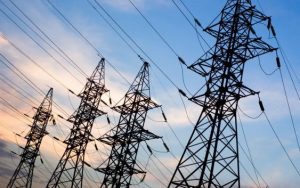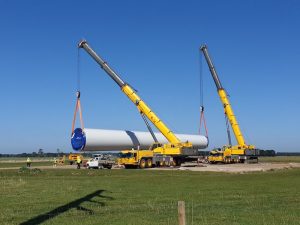A green stimulus plan could deliver more than 100,000 new jobs in Australia, through investments in wind, solar, batteries and buses, according to a proposal prepared by EY and outlined by WWF Australia.
Accelerated investment in new renewable energy projects is key to growing a modern manufacturing industry in Australia and could leverage five times the amount of private sector investment off a modest level of government support.
WWF Australia has detailed the plan in a new, “Australia renewable export COVID-19 recovery package”, which calls for support to boost uptake of renewable energy projects, as well as investments in new export industries, including sustainable transport manufacturing, green energy exports and training workers for sustainable industries.
Analysis undertaken by WWF Australia, with input from consultancy EY, estimated that for each dollar of stimulus support directed towards the clean energy sector, three times as many jobs would be generated, compared to the fossil fuel industry.
“We can rebuild our economy in a way that sets up Australia for prosperity in a world hungry for a low-carbon future,” WWF-Australia energy transition manager Nicky Ison said.
EY identified five core economic measures that the Morrison government could take, that WWF estimates would require an estimated $2 billion in government investment in the form of green stimulus, but which would support the creation of more than 45,000 new jobs, in addition to tens of thousands of jobs that could be created in new wind and solar projects.
These measures include a $500 million commitment to establishing a battery manufacturing sector in Australia, value-adding Australia’s abundant raw materials like copper, nickel and lithium, that could stimulate a further $6 billion in private investment.
Investments in sustainable manufacturing could deliver the bulk of new jobs under the plan, but supporting renewable energy component and electric bus manufacturers to establish a base in Australia, tens of thousands of new jobs could be created with a comparatively modest amount of government investment.
EY identified an opportunity an ‘electric bus revolution’ in Australia, which WWF estimates would require $240 million in public investment to build off the progress already being made in Victoria and South Australia to establish electric vehicle manufacturing in Australia, that could serve both the local market, as well as re-establishing an Australian export industry for vehicles.
WWF Australia also proposes a $500 million plan for supporting the deployment of solar installations across community buildings, including schools, hospitals, supports clubs and local council buildings, which could generate a further 5,000 jobs, and double the amount of private sector investment.
“Locally-built electric buses, battery factories in the regions, clean energy turbocharging the competitiveness of our manufacturing and food processing sectors, and renewable hydrogen produced in Australia powering industry here and overseas – these are just some of the opportunities.”
WWF Australia’s analysis found that supporting the clean energy sector would boost employment across some of the hardest hit industries as a result of Covid-19, including the manufacturing, research and construction industries.
“A clean stimulus package can address issues holding back renewables and get the ball rolling on more than 100,000 jobs. WWF-Australia calls on all levels of government to support this stimulus package,” Ison added.
WWF’s plan has won the support of investors with CEO of superannuation managers Australian Ethical Investment, John McMurdo, saying that the green stimulus plan would reap long term benefits.
“The recovery from COVID-19 will be challenging, but it also presents a historic opportunity to reboot our economy and deliver a healthier, more resilient and sustainable future for everyone,” McMurdo said.
“A renewable recovery is our best bet for a future that prioritises people, planet and prosperity. By investing in renewables, the climate crisis and economic recovery can be tackled together and rebuild in a way that makes the economy more resilient and more equitable.”
This sentiment was echoed by the managing director of HSBC’s centre of sustainable finance, Zoë Knight, who said that government’s economic response to Covid-19 should be “underpinned by environmental and social considerations”.
“The transition to renewables, and building a robust renewables export market in Australia, will create jobs and build healthier, more resilient, net-zero economies in which livelihoods and business both thrive,” Knight said.
RenewEconomy and its sister sites One Step Off The Grid and The Driven will continue to publish throughout the Covid-19 crisis, posting good news about technology and project development, and holding government, regulators and business to account. But as the conference market evaporates, and some advertisers pull in their budgets, readers can help by making a voluntary donation here to help ensure we can continue to offer the service free of charge and to as wide an audience as possible. Thank you for your support.





